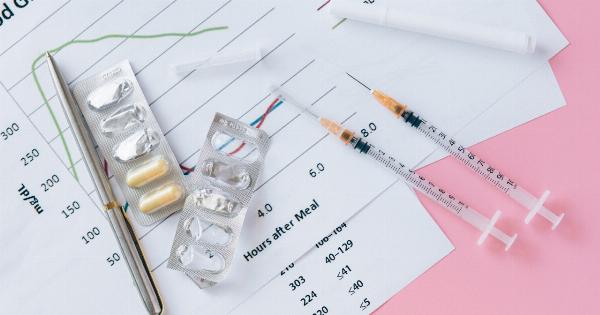Aging is a natural process that every living organism goes through. It is a complex phenomenon influenced by various factors, including genetics, lifestyle, and environmental factors.
One aspect of aging that has gained significant attention in recent years is metabolism.
The Basics of Metabolism
Metabolism refers to the chemical processes that occur within an organism to maintain life. It involves the conversion of food into energy, which is then used for various physiological functions.
Metabolism and Aging
As we age, our metabolism undergoes certain changes that can have a profound impact on our overall health and well-being.
These changes can affect how efficiently our bodies convert food into energy, how we store and burn fat, and how we process nutrients.
The Role of Mitochondria
Mitochondria, often referred to as the “powerhouses” of our cells, play a crucial role in metabolism. These tiny structures within our cells are responsible for producing the energy needed for cellular activities.
Mitochondrial Dysfunction and Aging
With age, the function of mitochondria can decline, leading to mitochondrial dysfunction. This dysfunction can result in reduced energy production, increased production of reactive oxygen species (ROS), and impaired cellular functions.
Caloric Restriction and Longevity
One approach that has shown promise in slowing down the aging process is caloric restriction.
Research has demonstrated that reducing calorie intake without malnutrition can extend lifespan in multiple organisms, including yeast, worms, flies, and rodents.
The Impact of Exercise
Physical activity and exercise have also been found to have a significant impact on aging metabolism. Regular exercise can increase mitochondrial biogenesis, improve mitochondrial function, and enhance overall metabolic health.
Diet and Aging Metabolism
What we eat can also influence the aging process and metabolism. Certain nutrients, such as antioxidants found in fruits and vegetables, can help reduce oxidative stress and support mitochondrial health.
On the other hand, a diet high in processed foods and added sugars can promote inflammation and accelerate aging.
Inflammation and Aging
Chronic, low-level inflammation, often referred to as inflammaging, is a hallmark of the aging process. This persistent inflammation can negatively impact metabolism, contribute to the development of age-related diseases, and accelerate aging.
The Role of Hormones
Hormones play a vital role in regulating metabolism and the aging process. As we age, hormone levels, such as growth hormone and testosterone, can decline, leading to metabolic changes.
Hormone replacement therapy has shown some potential in improving certain aspects of aging metabolism.
Targeting Aging Metabolism for Health and Longevity
Research aimed at understanding the intricate mechanisms of aging metabolism is ongoing. The ultimate goal is to develop interventions and therapies that can slow down the aging process, prevent age-related diseases, and promote healthy aging.






























